
10 Things We Wish We Knew Before Going #FullTimeRVer
10 Things We Wish We Knew Before Going #FullTimeRVer
Helpful tips for life on the road from an experienced couple.
By: Lindsay & Dan McKenzie
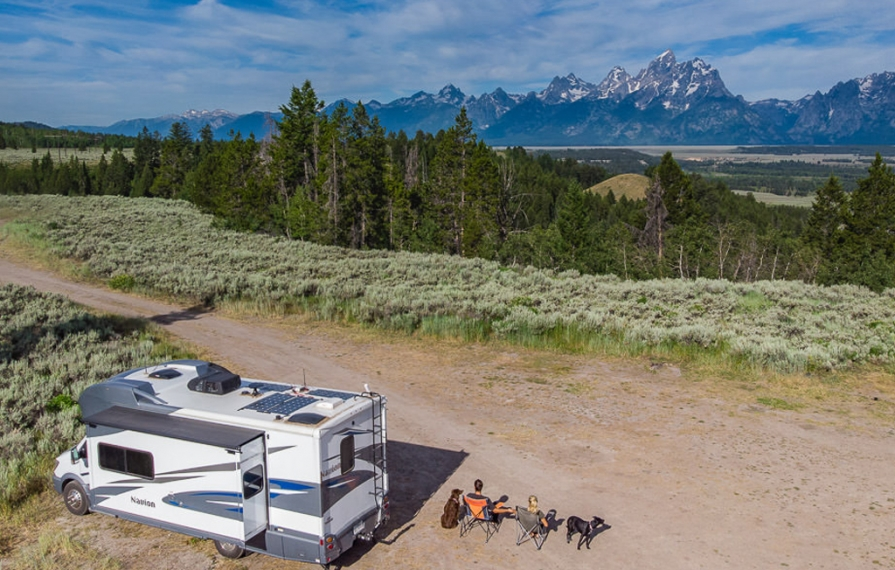
In 2016, we hit the road full-time with very little idea of what we were doing. We had never RVed before, but there was something about the open road that was speaking to us. We were longing for more adventure in our lives and needed a break from the 9-to-5 grind and the traditional way we'd been living.
So, with a basic knowledge of RVing and a whole lot of faith and excitement, we jumped in feet first and haven't looked back since. Nearly everything we've learned has been the hard way, unfortunately. But we now enjoy sharing our experience with others, in hopes of helping them to be more prepared than we were.
If you're considering taking the leap into full-time RVing, here are ten things to know beforehand that will save you a lot of frustrations and mishaps!
1. Choose the Right RV for You
Since we had never owned an RV before and were tent campers our whole lives, we didn't have the slightest clue of how to begin the process of choosing an RV. Our first instinct was to look to other RVers and see what types of RVs were most commonly used for full-timing.
Everyone we talked to encouraged us to get a fifth-wheel - family and friends, salespeople, and the friendly campers we'd annoyingly ask if we could peek inside their unit! We hardly gave it a second thought and began looking only at fifth-wheels. We simply thought that because they offered the most space, it was a no brainer.
We already had the truck to tow it and liked the price tag a lot better than a motorhome. So, we purchased a 30-foot used fifth-wheel. But, only six months later we were already looking to change RVs.
That space we wanted? Turns out it was more than we even needed! Towing something of that size also wasn't practical for how often we were traveling. We discovered we wanted something that we could easily hop inside, take off, and pull into the next destination quickly. We needed an RV that fit our lifestyle and travel type. We hadn't thought of it that way and truly hadn't taken the time to consider the implications of each type of RV.
For us, we love spending most of our time outside of the RV exploring and usually travel to a new area every week. It turned out, we were looking for more of an "adventure mobile."
You can read more about why we switched from our fifth-wheel to our Winnebago Navion, but the key takeaway is to consider why you're choosing to full-time RV and how you plan to use your RV. Are you planning to travel often or take it slow? Where do you plan to go? Weigh out the pros and cons of each RV and how they would impact you and your idea of RV life. Knowing these things about yourself will help you select an RV that is a good match for your lifestyle. (These questions to ask before becoming a full-time RVer are also helpful).
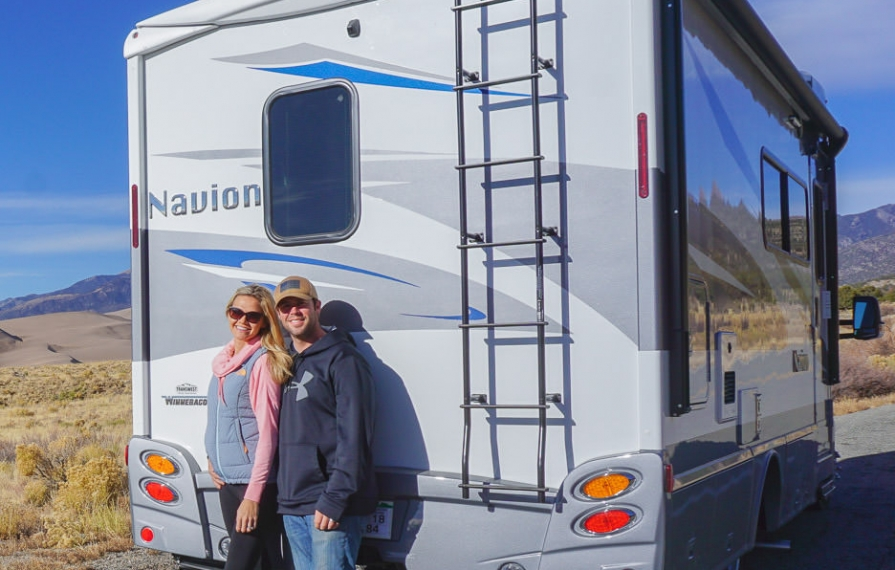
2. Go for a Practice Trip
Another tip we have is to "try before you buy." There are several great RV rental companies to choose from that will allow you to rent a variety of RV types. Go for a weekend trip and evaluate what you like or don't like, need or don't need. Sometimes you don't know until you're actually out on the road!
Being so inexperienced, this was a big mistake we made. Our first time out in an RV was the first day we hit the road as full-timers! We thought that all we needed to know was how to operate the different systems on our RV. Wrong!
It's extremely important to have certain procedures in place for travel days. We quickly discovered the need for a checklist to ensure we didn't forget any important steps. We also realized that we should each take on specific roles to work more efficiently as a team to get those tasks done.
During our first few days of full-timing, we made a lot of careless mistakes that could have been very dangerous. If we would've taken a practice trip close to home, we would've recognized the need for establishing roles and a checklist beforehand.
Many aspects of RVing simply take practice, such as parking your rig, hooking up your tow vehicle, leveling and getting all set up for your stay. You eventually get in a good rhythm, just like with anything you practice. However, having this rhythm in place before you head out to far-away places is much safer and a good goal to aim for.
3. Slow Down
For whatever reason, we spent a lot of our first year on the road in a hurry! We'd often wait until five minutes before we needed to check out of our campsite before we started getting road ready. As we all know, careless errors are often made when you are in a rush. Things like leaving compartments open or not taking the time to check your tire pressure, can often lead to dangerous situations on the road!
Not only were we often in a rush on travel days, but we were also traveling to new destinations frequently. While we enjoyed this, we'd often find ourselves extremely worn out. We eventually learned that we weren't getting as much joy out of our experiences when we were this run down. In fact, many times we were wearing ourselves out simply because of the fear we had of missing out (FOMO is a real thing!).
We didn't want to miss a certain city, activity, or event, so we'd do whatever it took to make it happen! Not only is this pure craziness, but it's yet another unsafe decision. When you're too worried about doing and seeing everything or sticking to a strict schedule, you may not even realize that you're putting yourself at risk. That type of travel often leads to driving when you're tired or driving after dark so you can make it on time for your reservation - again, rushing instead of doing what's most safe.
Give yourself some grace to take time off from the road and slow down. Rest when you feel burnt out and don't worry about all the things you should be doing or could be missing. Taking care of yourself, your health, and well-being should always be priority when it comes to traveling.
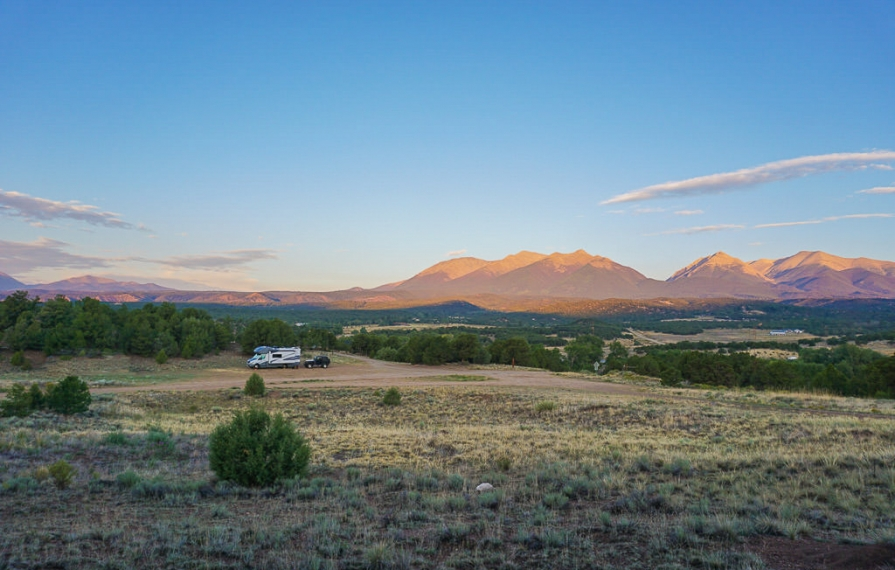
4. People are Good
Chances are, if you've spent any amount of time at a campground or RV park, you already know this. It's not uncommon to receive smiles and waves as you pull into a park and you might even have someone there who helps you park your rig without even asking! It's true, fellow campers are always there to help. (Read this fun article about why RVers are so happy for more on this).
While you may have already observed this as we had, we weren't always good about utilizing the help and company that was available to us. We'd get caught up in our old suburban neighborhood ways and keep to ourselves inside our RV. If we had something break, we'd figure out how to deal with it ourselves, even if that meant going and buying tools we didn't have in order to do so.
Don't be afraid to ask the RVers around you for help with something or invite them over for a campfire. There's always someone in the park who can help assist you with your RV repairs or needs and in fact, is even happy to help! There are also so many interesting and kind people around you that you'd be missing out on if you didn't get to know them and chat with them. And of course, always offer your own help and assistance when you see someone in need.
Even outside of the campground, we've found that you can generally trust most people you come in contact with. We've had strangers get out and stop traffic to help us back out of a tight space. We've pulled off on a hot day to offer water to people stranded from a flat tire. While we sometimes only hear about the bad things happening on the news, there is SO much more good.
5. Plan Ahead
Travel days go much smoother and safer when you plan ahead. Yes, we learned this lesson the hard way too! It's fun to be spontaneous, but balance is important - especially when you're traveling long distances.
Here are some important ways to be prepared before you get behind the wheel and head out:
- Don't rely on your Google or Apple maps app for directions. Use an RV-specific GPS and verify the route ahead of time. Google doesn't show low clearance areas, windy roads, or roads with weight restrictions. An RV GPS will ensure that your route doesn't contain roads that aren't suitable for your RV.
- Check ahead for weather and road conditions. Weather can vary greatly even just 30-60 miles away! Make sure you aren't traveling into or through bad weather. Also, road closures are common for a variety of reasons and nothing ruins a road trip like being stuck in terrible traffic.
- Make reservations in popular areas. RVing is becoming more and more of a popular means of travel and campgrounds and RV parks are booking up months in advance, especially during summer and in national parks and other camping hot spots.
- Have a plan B on where you can park overnight if you don't make it as far as you'd like to when embarking on a long travel day. When staying overnight at Walmarts, Cracker Barrels, or rest stops, make sure you read reviews and call ahead to ensure they allow overnight parking (not all of them do!) and that they are in a safe area.
6. You Don't Need as Much as You Think You Do
When we first hit the road, we jam-packed as much in our RV as we could. Going from over 1,000 square feet to just over 100 square feet wasn't exactly easy. If there was space left, we filled it and there was something in every little nook and cranny of our first fifth wheel.
When switching from our fifth wheel to our Class C, we couldn't believe all the things we pulled out that we had forgotten were in there. We had little problems downsizing even more at that point because it didn't take long to realize how little we needed while RVing.
It's extremely important to first know your RV's weight limits! Once you factor in your tanks being full and the weight of the passengers, you may find that there isn't a whole lot left. Besides, the moment you get to your first destination, you realize that the experiences are way more important than the stuff you brought along or left behind.
We typically advise people to bring no more than two items of everything per person - from general household items like towels and dishes to clothing items like jackets and jeans. Obviously, that may not work for every item, but keep in mind that you won't have much space for dirty laundry or dishes to pile up. So, you'll be washing things pretty quickly and able to re-wear or reuse them quicker than you would in a house.
Also, get in the habit of purging items every time you pay a visit home or buy something new, rather than continuing to pile things inside your RV. Remember that you're aiming to live more simply and while it may be hard at first, clearing out the clutter and valuing your freedom over your belongings is worth it. (Here are some more tips for downsizing).
7. Plan Travels Around Events
RVers typically plan travels based on the weather, seasons, or maybe their hobbies and the areas that they can most enjoy them. We did just that our first year of RVing. However, we encourage you to consider planning your travels around events too!
It's always a bummer to show up somewhere and discover you missed that area's best event of the year. Or, perhaps you're a few weeks too early and it's too late to get tickets or find reservations in order to attend. Sometimes the best way to experience a new destination is to attend an event and mingle with the locals.
Is there a festival you've always wanted to attend? Maybe it's a big one like Coachella, Mardi Gras, or the Albuquerque Balloon Fiesta. Or something more traditional to the area like Maine's Lobster Festival or the Taste of Chicago! Perhaps your favorite artist is playing nearby or there's a conference in the industry you work in that would be interesting to attend and network at. Whatever it is, events and gatherings of all types are really fun to incorporate into your travels. It's like a bonus because you get to explore the destination while you're there, too!
There's also a lot of RV community events that go on all year long! It's especially fun to connect with other RVers, swap stories and tips, and maybe even find travel buddies to caravan with. You can check out the long list of events on the GoLife calendar and find everything from rallies to expos to planned-for-you adventures!
8. Find Your Tribe
In every phase of life, it's important to find people who are like-minded or who are in a similar season as you. Having a support network makes RV life a lot easier and a lot more fun! And sometimes even our family members or closest friends just simply don't understand the full-time RVing world!
We can't encourage you enough to get out there and meet other RVers and travelers! Attending events, like we mentioned above, is a great way to do this. But social media also makes it easier than ever to connect with people. Instagram is a fun way to engage with other RVers, share photos of your travels, and see where other travelers are at so you can schedule meet-ups via direct messages. (Read more tips for using Instagram as a tool for RVing in this article).
Facebook also has a number of RVer groups you can join and instantly have access to campers who are similar to you. There are groups for RVing families, singles, retirees, millennials, entrepreneurs, and even groups specific to your RV model! We get instant tips and advice from other Navion owners in this helpful View-Navion Facebook Group.
Believe it or not, if you're willing to put yourself out there and meet other RVers, it's completely likely that you will make lifelong friends! Bonding over the shared experiences of RV life is truly a unique way to form relationships. Traveling and exploring with RV friends makes the memories that much sweeter!
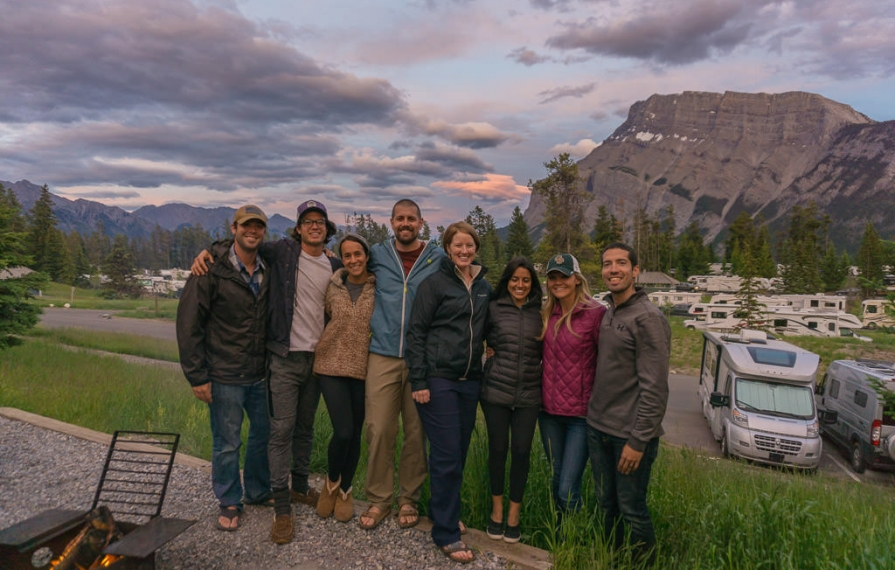
9. You Can Do Your Own Simple Repairs
We know you've already heard it, but no matter what RV you choose, things will break! Just like with a house parts don't last forever and accidents happen. RVs are put through a lot as they travel and especially if they are lived in full-time. So, expect repairs to be needed, which is why warranties are so important.
But don't panic! The first repair that came up for us, as extremely inexperienced RVers, terrified us. We immediately thought we needed to rush it into the shop and had no clue how to juggle being out of our home for an unknown amount of time. However, we decided to take a stab at the repair ourselves and with the help of YouTube and the advice of a mechanic at a nearby shop, it wasn't nearly as complicated as we had assumed.
In most cases, we've found that with a little patience, the right tools, and the manual, we've been able to tackle a lot of the simple repairs ourselves. Plus, Winnebago's customer support line is extremely helpful at troubleshooting and the service part of their website has a handful of helpful resources as well.
Having the willingness and confidence to try your own simple repairs will save you a lot of money and spare you the stress of being out of your home. Plus, the more you repair, the more you'll learn about your unit and the better you can maintain it and keep its systems working at their best.
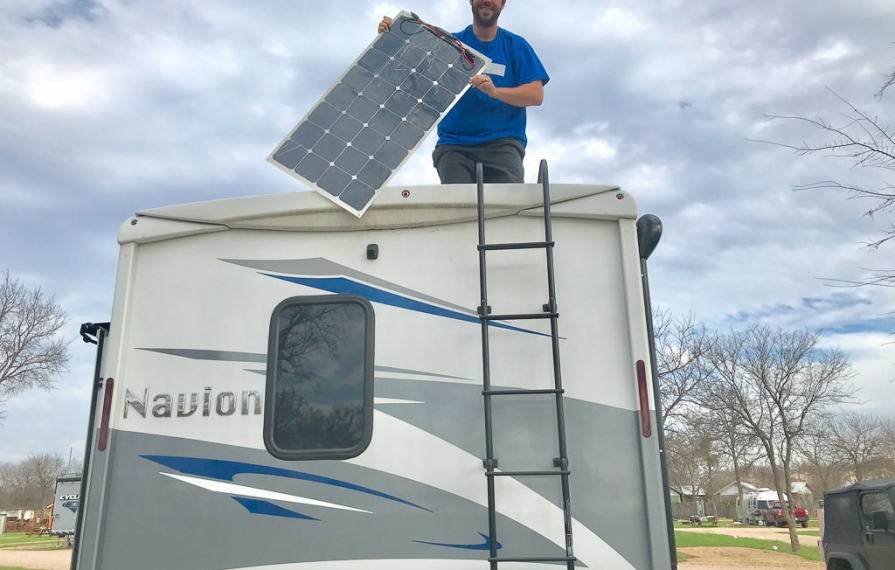
10. There are Many Ways to Save Money on the Road
Full-time traveling and RVing sounds like a very expensive lifestyle. We were worried we wouldn't be able to sustain it, especially with only one of us having a job when we first started. However, we've found that RVing can really be as expensive or inexpensive as you make it and there's a lot of ways to cut the costs.
There are so many helpful clubs and memberships you can join as an RVer that can offer a variety of benefits. From discounted or free parking spots to roadside assistance and gas discounts, here are a few of the most popular memberships, many of which pay for themselves within the first use:
- Passport America
- Harvest Hosts
- Good Sam
- AAA
- Escapees
Along with memberships, there are public lands all across the country that allow free overnight parking. Boondocking is a great way to lower costs, as campground rates seem to be on the rise. We also suggest cooking at home as often as possible and finding free activities in the areas you visit. While it can be tempting to live like you're on vacation full-time, it makes RV life much more expensive. (Here are some other easy ways to save while on the road.)
We hope that knowing these ten things ahead of time helps you avoid some of the mistakes we made. While it's great to prepare as much as possible, don't spend too much time over-planning and trying to anticipate everything that could go wrong. You'll likely make mistakes of your own, but sometimes it's the misadventures that make the best stories later.
The rewards of achieving the freedom that the RV lifestyle has to offer greatly outweighs any struggles you may face when first starting out. Before long, you find yourself feeling comfortable and confident in the lifestyle. And if you follow some of our tips, it will happen much sooner for you!
Comments
Comments on this post are moderated, so they will not appear instantly. All relevant questions and helpful notes are welcome! If you have a service inquiry or question related to your RV, please reach out to the customer care team directly using the phone numbers or contact form on this page .